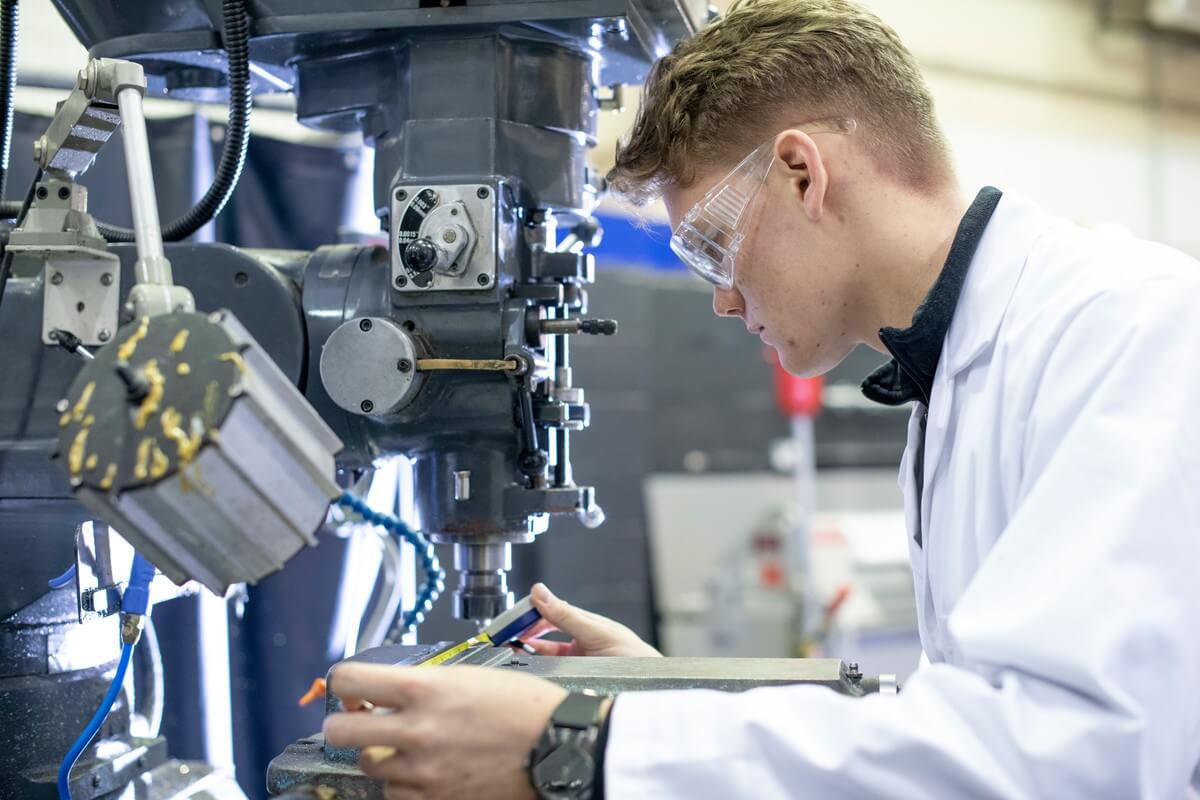As industries develop and undergo radical technological advancements, education must keep up in order to produce future-proof graduates.
Nowhere does this ring truer than in engineering, a field with wide social and economic implications and facing rapid transformation today.
As history has shown, engineers are the world’s invaluable members for their contributions in driving growth and development, using scientific knowledge and mathematical practices to develop new ways and make improvements that benefit mankind.
Playing an important role in this are universities, the institutions entrusted to prepare engineers who can live up to their pioneering predecessors and compete in a future where their work will become even more essential.
With its refreshed curricula and interdisciplinary undergraduate programmes, the UK’s University of Warwick’s School of Engineering is a university that does just that and more.

University of Warwick – School of Engineering
Developing future engineering leaders and gamechangers
Engineers of the future must possess a skill set that includes complex problem-solving, critical thinking, creativity, innovative thought, leadership and collaboration, as they will be at the forefront of tackling the rapid changes Industry 4.0 will bring.
They must also be able to adapt to global environments and work well with other disciplines, as the future workplace is one that requires agile workers who are able to move across different skillsets.
Warwick’s “Core for All” interdisciplinary engineering science curriculum is one such course that embodies these employability-enhancing features.
According The Guardian, “Designing courses that are cross-disciplinary, where one discipline learns from the perspective of another, or interdisciplinary, where the disciplines are integrated, allows for more context-specific programmes that better suit industry and prepares students for jobs, opening doors rather than closing them.”
At the School, all first-year students follow a general engineering programme before advancing to their second year, where they continue to study the same core modules as all other students until the end of term one.
After that, they can opt to continue with a General Engineering programme, or choose to specialise in a specific Engineering discipline such as Automotive Engineering, Biomedical Systems Engineering, Civil Engineering, Electrical and Electronic Engineering, Mechanical Engineering, Systems Engineering, and more.
This innovative “Core for All” curriculum is what makes the School stand out among other engineering schools.
Co-designed and co-taught by academics from each of the School of Engineering’s research streams, it leverages on an interconnected approach that benefits students as they gain a learning experience of shared engineering principles and approaches from several disciplines.

University of Warwick – School of Engineering
Having this balanced exposure to major engineering disciplines allows students to make informed choices about the degree programmes they wish to pursue. Armed with the skills and knowledge developed, students will be able to understand what they’re undertaking, whether it’s the growing Systems Engineering field or more traditional engineering routes.
Engineering students at Warwick also study and receive practical experience in refurbished facilities, with new equipment and learning spaces. By using real-life problems and focusing on teamwork, the School is developing a cohort of collegiate, confident, articulate and resilient future engineers who can effectively work together in multidisciplinary and multicultural teams.
Such preparation enables Warwick graduates to transition into the important roles they will play in our global future. It is no understatement to say that the world is relying on today’s engineering students to be the drivers of change for tomorrow.
The 2019 Ipsos MORI Veracity Index, a long-running poll on trust in professions in the UK, found that engineers are the fifth most trusted profession in the nation.
The Engineer reported: “The research, which is based on face to face interviews with a sample of 1020 adults across the UK, found that reasons for trusting engineers include being experts on the things that they talk about (49 per cent) and that they turn theory and ideas into things that work in reality (41 per cent).”
Commenting on the findings, Mamta Singhal, design engineer and spokesperson for the The Institution of Engineering and Technology (IET), which worked with Ipsos MORI on the poll, said: “Engineers play a central role in everyday life and contribute to advancing the world around us and finding solutions to global challenges. It’s fantastic to see that nearly nine in 10 people trust engineers – this demonstrates the huge level of professionalism and importance of engineers in the UK.”
With its innovative curriculum and effective practical learning opportunities, Warwick’s engineering graduates are more than ready to lead the way into an exciting future ahead.
Follow Warwick University’s School of Engineering on Facebook, Twitter and Instagram.
Click here to find out more about Engineering at The University of Warwick

Liked this? Then you’ll love…
4 leading North American universities for biomedical engineering
Launch your career in the innovative world of automotive engineering











